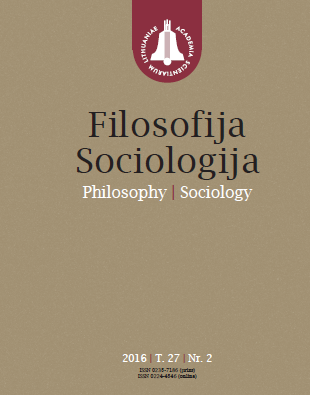Biomedicinos mokslų krypties studijų programų studentų profesinio tapatumo aukštojoje neuniversitetinėje mokykloje vertinimas
The evaluation of professional identity among biomedical study programme students at a nonuniversity higher education institution
Author(s): Laimutė KardelienėSubject(s): Social Sciences, Education, Sociology, Higher Education , Educational Psychology, Social Theory
Published by: Lietuvos mokslų akademijos leidykla
Keywords: biomedical study programmes; college level studies; professional identity; an evaluation of the studies;
Summary/Abstract: In recent years in Lithuania it is often publicly spoken about the advantages and disadvantages of the current health system. The motives for choosing a biomedical study programme are frequently noted. It is a fact that the interest in this particular study profile is increasing and there is a tendency for the majority of post-graduates to go and work abroad. When this situation is evaluated more closely, the career decisions of the Y generation, which is steadily approaching the job market, are often contrasted to the currently-dominant X generation that, frankly, represents different values and behaviour. The object of this particular research is the change of evaluation of the studies of a future specialist in personal biomedical study programmes in a non-university higher education institution. The aim of the study is to assess the change of evaluation of the studies of a future specialist in personal biomedical study programmes in a non-university higher education institution. The participants of the study are the same individual students from the Medical Faculty that were questioned during their first and, later, their third years. The research of biomedical programme students in a non-university higher education institution was carried out in the Utena University of Applied Sciences and it allows the researcher to conclude the following: amongst the students, the aspiration to receive a higher education diploma is dominating; since non-university studies provide a bachelor degree only, this partially explains why the majority of students plan further studies or plan to go abroad for financial reasons, while only a third plan to work according to their received qualifications; the requirements for study subjects are evaluated as high and the study conditions are evaluated as good; during the study years these evaluations have changed: at the end of the studies the students gave lower marks for the study programmes and study environment; at the end of the studies students more often than in the beginning had doubts about their chosen study course.
Journal: Filosofija. Sociologija
- Issue Year: 2016
- Issue No: 2
- Page Range: 140-150
- Page Count: 11
- Language: Lithuanian

